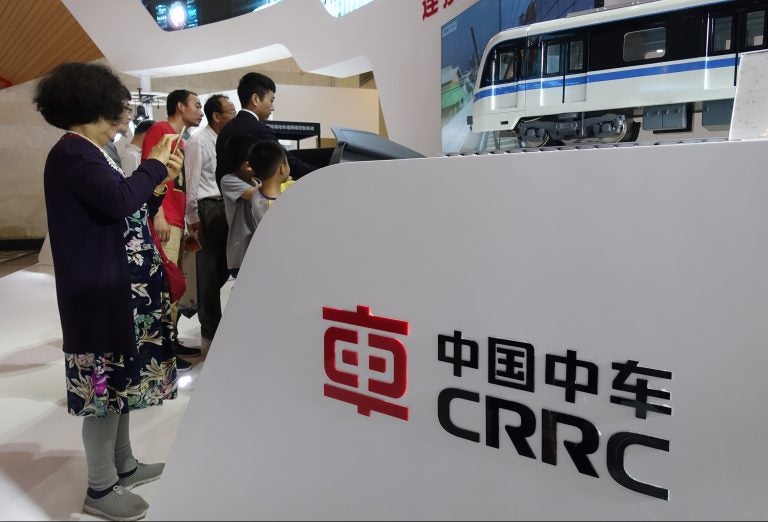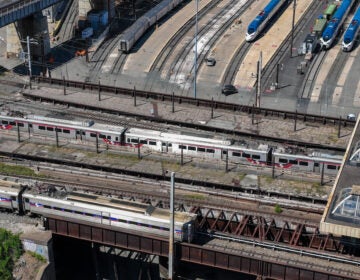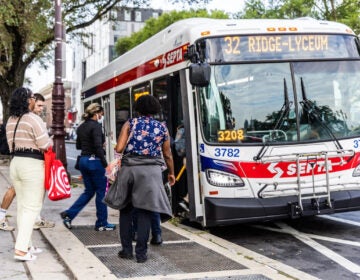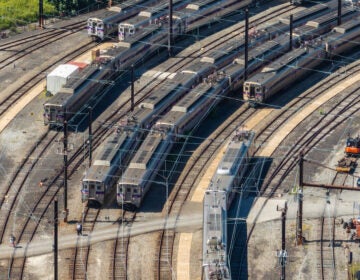How a bill to ban Chinese train cars could hinder SEPTA’s multibillion-dollar upgrade plans
Legislation pending in Congress aims to bar U.S. public transit agencies from importing Chinese train cars due to security concerns.

People visit the stand of CRRC (China Railway Rolling Stock Corp) during an expo in Shanghai, China, 14 June 2018. (Imaginechina via AP Images)
A piece of legislation pending in Congress aims to bar U.S. public transit agencies from importing Chinese train cars due to security concerns.
But what may seem like a minor bump in fraught diplomatic relations between the two global powers could turn into a costly headache for transit agencies that rely on Chinese railroad manufacturers. Among the agencies at risk: SEPTA.
Philadelphia’s largest transit provider is expecting a delivery of 45 double-decker passenger coaches from CRRC, a Chinese state-owned rolling stock manufacturer, next year. The company’s $147 million bid for the order was 25% to 35% cheaper than those from its two main rivals, South Korea-based Hyundai Rotem and Bombardier, a Canadian company.
“CRRC was chosen because it was the best value and most advantageous for SEPTA,” said Andrew Busch, the agency’s spokesman. “And the price CRRC came in at was significantly lower than the other two companies that bid on it.”
The ban on imports from CRRC would likely mean higher costs for SEPTA as it prepares to invest nearly $2 billion in more than 350 new train and trolley cars during the next decade.
“It’s always better to have more companies competing for your business,” Busch said.
SEPTA currently has an option to purchase the 250 additional cars it will need to replace and expand its 40-year-old Silverliner IV fleet through an existing contract between Bombardier and the neighboring New Jersey Transit system, he said. But those cars could come at a higher cost than a fresh, competitively bid contract.
Busch said SEPTA’s legislative affairs department is closely monitoring the bill in Congress, though many say it doesn’t seem likely to pass.
Backers of the ban pitch it as everything from a security measure –– owing to the state-owned nature of CRRC –– to a means of encouraging rail car production in the U.S., despite the fact that no domestic passenger rail car manufacturer currently competes for similar contracts.
However, existing federal law does mandate that all passenger trains must be assembled in the United States, including SEPTA’s current order of CRRC coaches. Those cars will be made in China, but shipped and assembled at the company’s plant in Springfield, Massachusetts.
WHYY is your source for fact-based, in-depth journalism and information. As a nonprofit organization, we rely on financial support from readers like you. Please give today.







